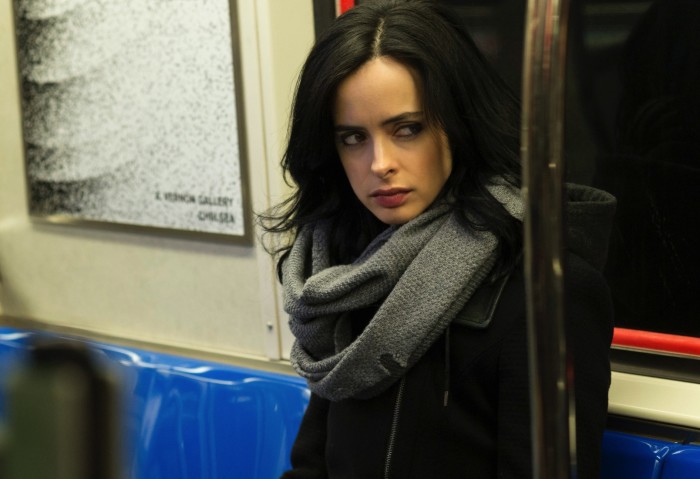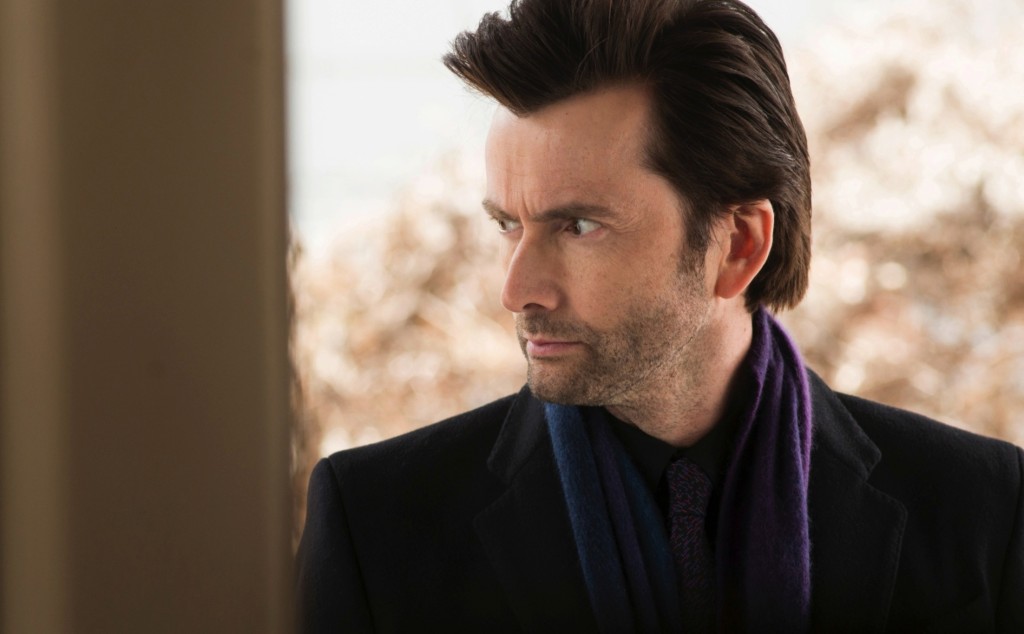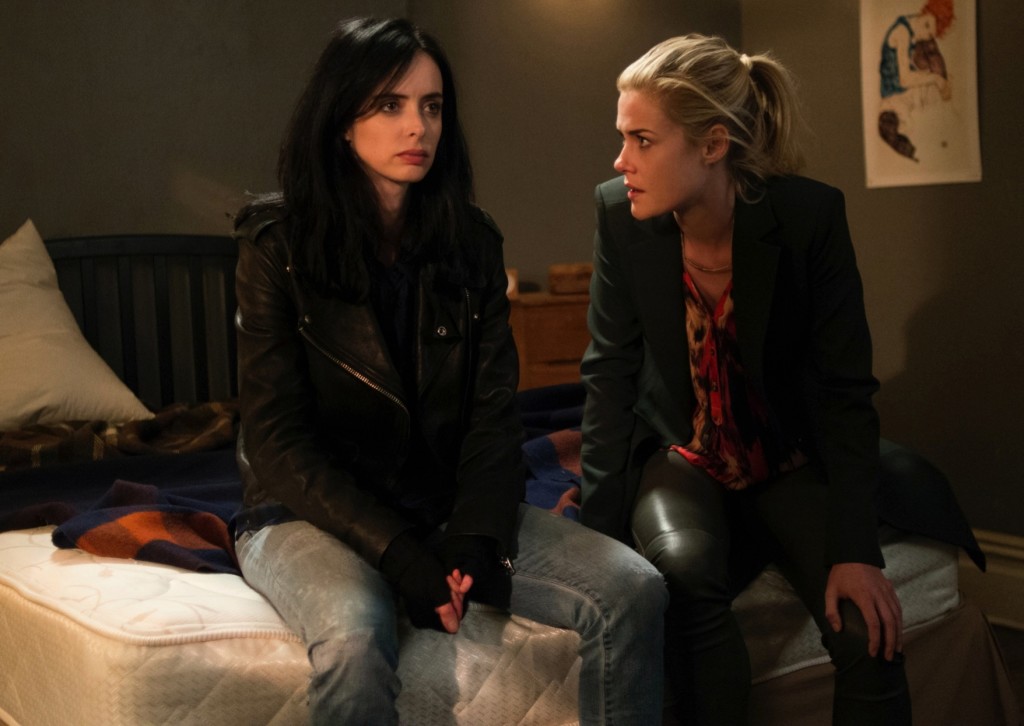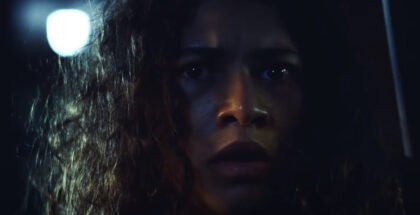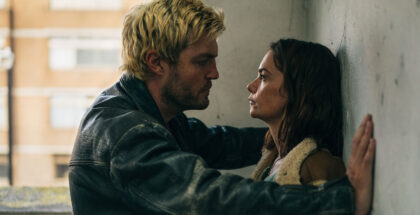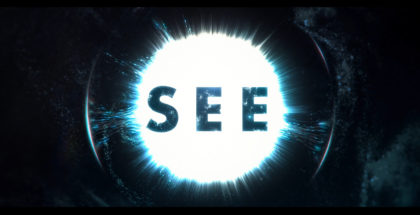12 things we like about Jessica Jones Episodes 1 to 5
David Farnor | On 24, Nov 2015
If you’ve been buried under a rock for the last week, you’ll be unaware that Jessica Jones has been released on Netflix – and that it’s awesome. If you are aware of both of these things, you’ve probably hoovered up at least five episodes by now. So, we’re declaring this a Spoiler Zone: let’s talk about how great those first five episode are.
You can hear Jo Bromilow and I talk about Episodes 1 to 5 in our Jessica Jones Podcast Special, but here are the main things we like about them. What do you like? What would you like us to discuss in the podcast? This is a Spoiler Zone, so put all your spoilery thoughts below without fear of ruining it for other people.
Note: If you haven’t seen Episodes 1 to 5 already, we’re recommend not reading on. Did we mention the spoilers? (You read our spoiler-free review here – or listen to our spoiler-free podcast discussion of the show.)
1. It’s not a superhero story
Say the words “superhero TV show” to most people and they’d think of capes, explosions and people flying. Jessica Jones, though, is the opposite of that: it’s a detective story about a woman who’s drunk, rude and acerbic as heck. She just happens to be a superhero. It’s the same, matter-of-act approach that applies to everything else in Netflix’s series, allowing its characters to be defined by more than their stock types: Jessica’s lawyer friend/boss, Hogarth (Carrie-Anne Moss), for example, is married to a woman and sleeping with another, but there’s more to her than that; you wouldn’t call Jessica Jones a “lesbian drama”.
(Side note: From The Good Wife to How to Get Away with Murder, legal dramas are really good at giving us female characters with depth.)
2. It deals with the claustrophobia and trauma of abuse
The villain, Kilgrave (David Tennant), can control people’s minds. The story is set after Jessica has retired from trying to be heroic, because of what Kilgrave made her do when she was under his control: Tennant, whose eyebrows alone are intimidating, isn’t just a bad guy, he’s a creepy ex, who’s still trying to abuse and control his former partner. Having a superhero story about a female is a baby step for the on-screen genre, but it’s good to have one that is already exploring such important subjects and themes.
3. Purple is everywhere
No, seriously. Kilgrave is known as “The Purple Man” and you can see little flashes of the colour everywhere, from ties in high street shops in the background of Episode 1 to people’s costumes – a subtle visual representation of the trauma that haunts Jessica all the time.
4. The opening credits
Moody jazz. Noir stylings. Who should have composed the music and theme tune for Jessica Jones other than Sean Callery, the man who also did the music for Homeland, everyone’s favourite moody jazz trumpet noir thriller?
5. It subverts the male gaze
Jessica spends her time following men around with a camera, literally subverting the male gaze so often seen in blockbusters and comic book movies. The fact that she’s often looking at Mike Colter’s Luke Cage only adds to it.
6. Super sex!
Did we mention Luke Cage? Colter and Jessica aren’t just superheroes, they’re super in the sack: far from teaming up, Avengers-style, they hop immediately into bed with each other, as two hot, single people are liable to do. The show treats sex in a down-to-earth way once again, using it as a joke in Episode 3, while that same episode also gives us a cute date in which they swap superhero abilities and anecdotes – a glimpse of what a normal relationship can look like in the Marvel universe. They even swap texts about buying a new bed.
7. Luke Cage is bad-ass
Colter’s Cage is powerful. So powerful that his super name is… Power Man. Yes, really. On the plus side, the bit where he takes a circular saw to his perfect abs is brilliant. This hulking man’s aversion to violence is interesting too: he walks away from other people as much as he battles them. Meanwhile, there’s that lingering question of what his powers could be used for, if Kilgrave got hold of him – and, of course, what that photo on his mantlepiece, which looks like the woman from Jessica’s flashbacks, means…
8. Simpson has an interesting case of the machos
Jessica and Luke may be going at it, but best friend Trish (Rachael Taylor) has got her own fella: Simpson, a macho cop who tried to kill her under Kilgrave’s influence. Curiously, Simpson is also set to become Nuke, a villain from the comics, should the series follow the precedent set on the page (he’s origin story has been re-written slightly). Having seem him go from bad guy to good guy on the side of Trish and Jessica, what could push him back over the line in villainy?
9. Trish is more important than Luke
It’s also worth noting that the relationship between Trish and Jessica is the most important thing in the show: a female friendship of support and encouragement that trumps any blokey bonds. Trish’s development as a kick-ass character in her own right, from a radio DJ calling out Kilgrave to a person fending off attackers, is great, with the bickering between her and Simpson as they try to help Jessica kidnap Kilgrave a highlight. “Just because I slept with you, doesn’t mean I want your opinion.” Ouch.
10. Kilgrave is smart
After relatively brief glimpses throughout – Episode 2’s nightmarish house guest scene, including kids being put in the closet, only for us never to see them again – Episode 5 gives us the first proper showdown between Jessica and her ex. After discovering that anaesthetic is a weakness (knocking out Kilgrave knocks out his mental powers), the plan is to shoot him with a dart and then lock him up in a soundproof room. But henchmen stop Simpson, Trish and Jessica – not because they under Kilgrave’s control, but because they’re normal people paid lots of money to protect him. Even when’s he out cold, Kilgrave is unreachable: he’s not just evil. He’s smart.
11. Malcolm is complicated
Eka Darville is fantastic as Jessica’s neighbour, Malcolm, a stoner who’s so convincingly out of it all the time that the discovery (in Episode 4) that’s he’s been acting as a spy for Kilgrave is genuinely surprising. That’s partly down to Eka’s performance, which yields even more complex sides of Malcolm’s addicted personality. With him listed as appearing in every episode, how will his character develop?
12. The female heroes behind the camera
It’s one thing for Marvel to have female heroes in front of the camera – it’s another to half them behind it. Melissa Rosenberg, who did good work with Twilight, is the showrunner here, and she does fierce work – supported by S.J. Clarkson as the director of Episode 1 and 2. Female directors are present in the world of TV, but (examples such as Michelle MacLaren’s Breaking Bad work aside) are often overlooked. You go, S.J. Clarkson. And none for Gretchen Weiners.
All 13 episodes of Jessica Jones are available to watch on Netflix UK on Friday 20th September, as part of a £7.49 subscription.


